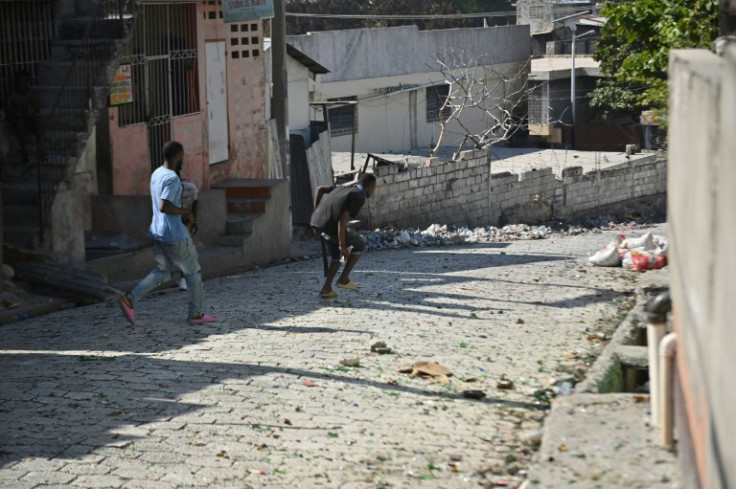
The U.S. military has evacuated non-essential personnel from the U.S. Embassy in Haiti, deploying additional forces to enhance security. This move comes in response to the recent surge in gang attacks, which have left large parts of the capital, Port-au-Prince, under gang control.
In an airlift operation, military aircraft flew non-essential American employees out of the country, emphasizing that no Haitians were on board. The decision to evacuate was prompted by the deteriorating security situation in the embassy's vicinity and the broader escalation of gang violence in Haiti.
"This airlift of personnel into and out of the Embassy is consistent with our standard practice for Embassy security augmentation worldwide, and no Haitians were on board the military aircraft," the statement from U.S. Southern Command read, as per AP News.
The U.S. Southern Command issued a statement clarifying that the airlift was consistent with standard security procedures for embassy augmentation worldwide. Many non-essential personnel, including the families of diplomats, had already been ordered to depart in July.
The situation in Haiti remains dire as gang violence continues to cripple the nation's economy, causing food and water shortages. Haiti's Prime Minister, Ariel Henry, is facing challenges, cannot return home, and is rejected by the Dominican Republic for safety reasons. The Dominican government cited Haiti's "totally unsustainable" security situation, urging urgent international intervention.
Efforts to deploy a U.N.-authorized security force have been unsuccessful, and Caribbean leaders are convening an emergency meeting in Jamaica to address Haiti's "dire" situation. The international community, including the United States, France, Canada, the United Nations, and Brazil, has been invited to the meeting.
In the capital, Port-au-Prince, police and palace guards are working to regain control after gangs launched major attacks on police stations. Sporadic gunfire and attacks on key state institutions have left the country paralyzed for over a week.
Despite the extended state of emergency and nightly curfew in Haiti, gang attacks persist, leaving the country in a state of paralysis. The unrelenting violence has led to dwindling supplies of basic goods, exacerbating an already fragile economy.
Haiti's political landscape remains turbulent, with calls for Prime Minister Henry to resign or form a transitional council. Despite agreeing to hold a general election by mid-2025, Henry has not announced a power-sharing government, leaving the country in political uncertainty.





